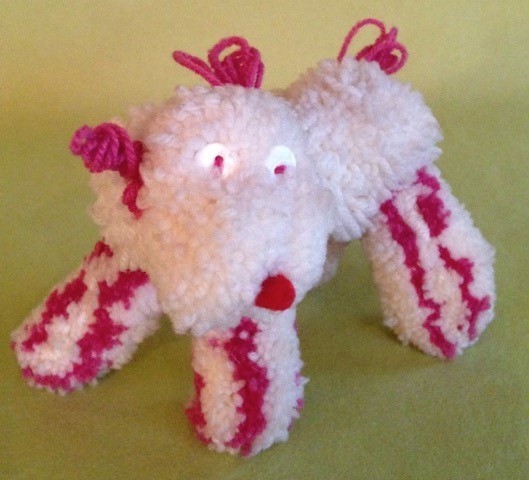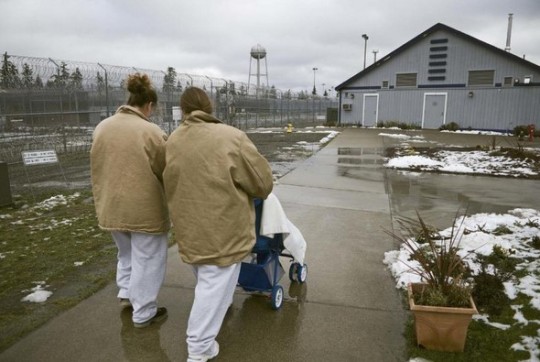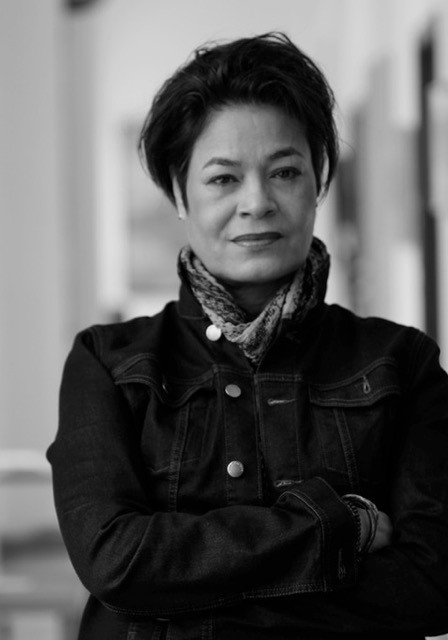Turning Prisons into Reading Centers

Every child in the world deserves reading and literacy, not just those whose parents live in the free
world.
Contributed to CBC Diversity by Deborah Jiang-Stein
At a time when most babies coo along with lullaby wind-up toys, my ambient sounds were women’s voices in small clusters and the wail of a siren across the prison compound for count time. Count is when prisoners report to their bunks in their cells or living units while the guards count the population. Three times a day for a year, the siren blasted in my backyard—the prison yard.
I was born in prison during the beginning of one of my birth mother’s many prison sentences. She was a heroin addict sentenced for drug-related crimes, much like many in prison today. She was in the first months of pregnancy at the time of her sentence, and I lived in the prison for a year until Child Protection Services removed me for placement into foster care. Later, I was adopted into a family of academics, my parents both English teachers.
But sometimes I’ve wondered: Did anyone read to me in prison? Was my birth mother allowed board books in the room I shared with her for the year we spent together?

Whether she did or didn’t, I’ll never know. What I do know is that my love of learning, one reason why I am a writer today, is because the family who adopted me instilled a love of words and reading within me, along with a passion for art, music, theater, and dance — all things creative.
My exposure to reading as a child led me to found The unPrison Project because:
1. I have a deep-rooted tie to women in prisons, especially mothers.
But most of all because the facts prove what I’ve known all along:
2. Life skills like reading and literacy, and non-cognitive skills like persistence, goals planning, and self-confidences, all contribute to success in our communities.
I also founded The unPrison Project because:
- Two thirds of women in prisons are mothers, the majority with young children under age 10.
- 7-10% of women sentenced to prison are pregnant at time of sentencing.
- Most often, infants are removed at birth and if arrangements aren’t made with a family member for custody so the baby enters the foster care system. Thus begins a second generation of trauma due to mother-child separation.
The science of early childhood development teaches us that a child acquires the ability to think, speak, learn, and reason during his or her first three years of life. A baby’s early experiences shape his or her brain’s architecture, building either a strong or a fragile foundation for life, learning, and health. Adverse early experiences and deprivation can impact a baby’s brain development for an entire lifetime, and positive learning experiences can set the path for self-esteem and possibility.

After years of speaking in prisons to talk about the value of life skills, I recognized the void of children’s books in visiting rooms as well as in the prison nurseries where I visited mother-baby programs.
Nine states (New York, Washington, West Virginia, California, Illinois, Indiana, Ohio, Nebraska, South Dakota) currently have on-site nurseries for a select number of pregnant inmate mothers to live with and care for their babies born during their prison sentence, and another nursery is scheduled to open in the Wyoming women’s prison in the near future. Often, local community agencies will donate nursery supplies, clothes, cribs, and other material needs, but there’s always a need for new and current diverse books.
Many prisons say they only have “only a few dog-eared books” in their visiting rooms. Visiting rooms in prisons, as well as in juvenile detentions, are the equivalent to one of the largest “in the margins” classrooms. These spaces are ripe for the development of on-site children’s book library carts and reading centers for learning and literacy.
By stocking prison nurseries with inclusive children’s books for ages 0-3, babies born in prison are groomed for a lifelong love of reading and learning.
Literacy is learned, and parents who can’t read or write often pass on illiteracy.
A partnership between the Children’s Book Council and The unPrison Project is providing an abundance of new books for prison nurseries, and also for visiting rooms in prisons. Our goal is to help set the groundwork for literacy in the next generation and, at the same time, nurture new bonding and parenting skills for incarcerated mothers, which is as important inside prison as it is outside.
This specific and large diverse market of incarcerated mothers and their children need attention. What if prison nurseries and visiting rooms were turned into reading centers? Providing an environment of reading and literacy will help change the prospects of babies born to mothers in prisons. As the late Walter Dean Myers said, “What I believe is that we need to have every child reading to give them a shot at life.”
The CBC/unPrison Project partnership makes a statement that reading is for every child, not just those with parents in the free world. The CBC/unPrison Project partnership makes a statement that reading is for every child, not just those with parents in the free world.
Reading creates an altered state, a grounding between parent and child. If it weren’t for my early exposure to reading and the exploration I’ve found in words and books, I most likely would have continued to follow in the footsteps of my birth mother. Instead, I’ve made my mission to give back in whatever ways I can to the communities of my roots, those inside prisons.
Our world will be a better place when we each find ways to give service to others and, for me, I can’t imagine a better way than to open up a world of possibilities through stories.


Deborah Jiang-Stein, author of the memoir, Prison Baby, is a national speaker and founder of The unPrison Project, a 501c3 nonprofit working to empower and inspire incarcerated women and girls with programs, resources, and tools for life skills and mentoring. For more than 10 years, Deborah has championed support for people in need of freedom, education, shelter, and job development.

